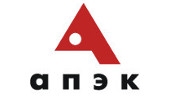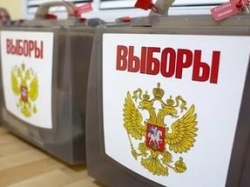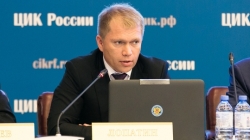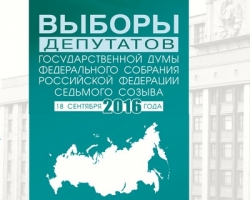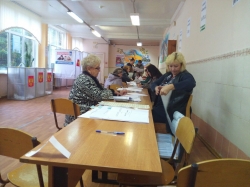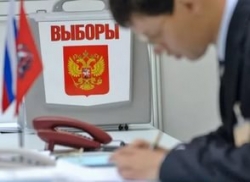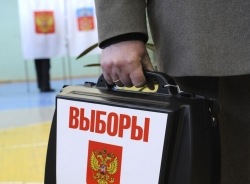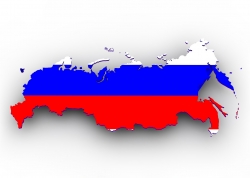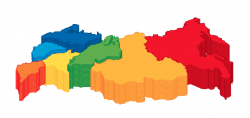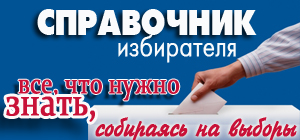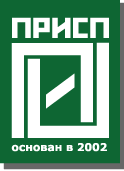Book "MODERNIZATION OF ELECTION PROCESS IN THE WORLD"
19-10-2011, 12:24 /

Igor BORISOv,
Chairman of the Council, Russian Public
Institute for Electoral Rights, Ph.D in Law
vladimir ZHuRAvLEv,
Chairman, Election Commission,
Leningrad Region
Chairman of the Council, Russian Public
Institute for Electoral Rights, Ph.D in Law
vladimir ZHuRAvLEv,
Chairman, Election Commission,
Leningrad Region
INTRODuCTION
Analysing the contemporary electoral systems, which exist in the world1, one can conclude that there
is no “ideal” electoral system that constitutes the political order reference standard of a democratic society.
Each state, expressing the will of its people, chooses an electoral system with due consideration of the
national identities - historical, economical, social, cultural etc. Actually, it means realization of its rights concerning
state electoral sovereignty2. In which case, each sovereign state, taking into account its international
commitments, defines the direction of such development.
Today with the whole gamma of variety in organizing national electoral procedures a general tendency
is observed towards harmonization in issues of regulation for exercising electoral rights and freedom,
wherein one can be sure, by comparing the elections in different states of the world. All the states hold
elections approximately under the same scheme: The national electoral system is established by legislation
(both in the narrow and in the broad aspects), the electorate and procedure for its accounting (mandatory
and notifying) is defined, independent electoral bodies are formed or imposed with authorities, election
campaigns are conducted with its national identities by periods, stages, restrictions for the participants.
Then voting and determining the vote returns and election results.
However the absence of strict criteria and norms for conducting electoral procedures at international
level gives great freedom of discretion to national legislators and allows create multiple models for organizing
national elections.
As example of consolidation of international obligations of the states in electoral sphere one can give
several extracts from international acts that illustrate the sufficiently general and ambiguous nature
of “international norms”, regulating electoral procedures.
“Each citizen shall have... the right and opportunity.... to vote and be elected in the genuine periodic
elections... guaranteeing freedom of voters’ expression will” (clause 25 of the International Pact on Civil
and Political Rights). The “periodicity of elections” is interpreted in different ways by different states: from
1 year (President of Switzerland) and 2 years (US House of Representatives) to 7 (President of Ireland)
and even 9 years (Senate of France up to 2003), “free will of expression” can stipulate insistence of voting
(Belgium) and official video-recording of the voting process (Azerbaijan).
“The will of people shall be the basis of the government’s power; this shall find its expression in ... the
genuine elections, which shall be held ... by ....the forms, guaranteeing freedom of voting” (clause 21 of the
Universal Declaration of Human Rights). The international acts do not answer to what extent the voting
by fax (USA), post (FRG), internet (Estonia) or voter’s signature on the reverse side of the ballot (Finland)
guarantee real freedom of voting.
Over the period from 2003 to 2011 in the Organization for Security and Cooperation in Europe (OSCE)
region alone 182 election campaigns were held for the national level elections viz. elections of the heads
of states, national parliaments and their chambers. Each of these election campaigns had both its legislative
and organizational specifics, retaining “unity in diversity”.
Probably, in the last few years only one development direction of the national electoral systems was
inherent in one or other degree practically for all democratic states viz. the automation (modernization)
of their electoral systems, by using hardware at all election campaign stages, and the first and foremost
being e-voting.
DOWNLOAD ALL BOOK HERE:
Book "MODERNIZATION OF ELECTION PROCESS IN THE WORLD".pdf
Уважаемый посетитель, Вы зашли на сайт как незарегистрированный пользователь. Мы рекомендуем Вам зарегистрироваться либо зайти на сайт под своим именем.
Другие новости по теме:
- MEMORANDUM of independent and impartial observation of elections of the Pre ...
- RESOLUTION OF THE INTERNATIONAL CONFERENCE “INTERNATIONAL PUBLIC ELECTION M ...
- The statement by group of independent international observers on elections ...
- AGREEMENT on cooperation during observation of elections of the President o ...
- International support: the united council of observers is founded in Moscow



